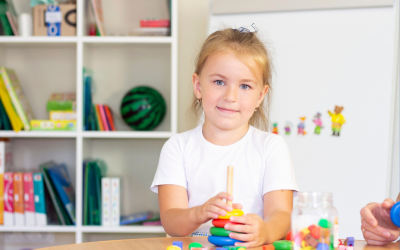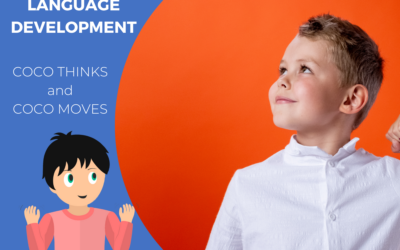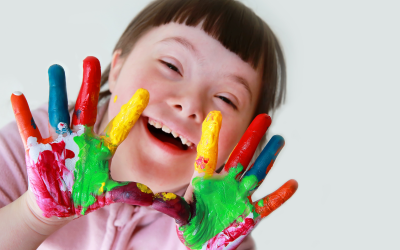Naturally, children should be able to communicate and gain a minimum of knowledge before pre-school. The child should be able to understand most of things you tell him so that learning in school is not too difficult. You can help him to develop his language through simple means. Let’s make a point!
Understand the language development in the child
At this age, your child should be able to put words together to make sentences of 5 or 6 words. He should be able to say complex sentences and communicate with everyone else. For example, a child who does not have any language disorder, in this age range, can tell a story. He can also ask questions and understand complex concepts or instructions.
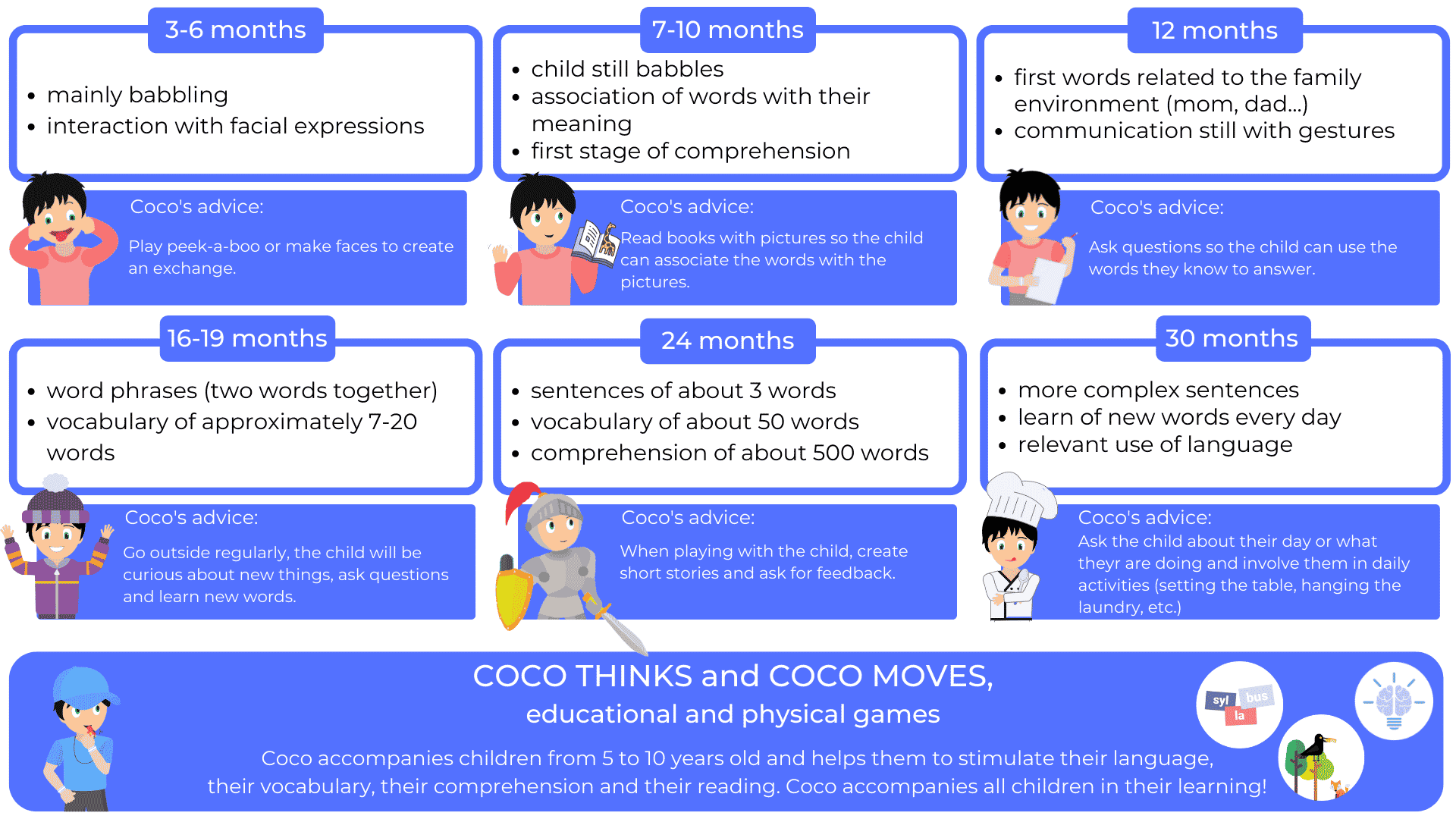
The stages of language
Before introducing the main stages of language development in children, it is important to remind that every child is different. These stages are approximate and every child grows up at his own pace. If your child is late, don’t worry! You can support him with our tips or, if you want to be sure, you can ask for advice to your pediatrician or to a speech therapist.
- 3-6 months : at this age, the child begins to gurgle. He does it to interact with the environment and his family. For example, if you grimace, he can reply with gurgling.
- 7-10 months : the child begins to babble. This stage is fundamental for the language because the child begins to give meaning to words and to associate them to objects or events. It is at this age that the child lays the foundations for the development of his understanding.
- 12 months : the first words come. The child still communicates mainly with gestures, but he begins to use words, too. These words often refer to the family context : mum, dad, yes, no…
- 16-19 months : the child communicates with what is called « two word phrases ». The child begins to associate two words to express his tought or his needs. His vocabulary contains 7-20 words.
- 24 months : the child’s vocabulary widens to reach 50 words used and 300 words understood. Sentences consist of three words, so they are more complex.
- 30 months : from 30 months, we can say that the child has gained language even if it is still simple. Sentences are however more complex and the vocabulary is big. Every day, the child learns new words and uses the language better and better.
How to stimulate language
Language has a function of interaction and expression.
When the child is small, he uses language to interact with the environment, he gurgles or babbles because these sounds produce an effect in their entourage. When a child produces a sound, we tend to turn to him and reply with words or other sounds. In this case, you can play swap games with the children, such as the peekaboo game. You can also grimace and wait for the child’s reaction. Do not take up all the space of the dialogue, but give to the child time to make sounds in reply.
Then, the child begins to use the language to express his desires and needs. He uses mainly words which are related to his entourage. It is important to tell him the name of all objects, you can also use books with images and ask him to search for precise images or to name them.
Finally, the child will use language to talk with everyone else. You can create stories in the games, ask him about his day or even make some activies of daily life with him.
To stimulate the child language, you must make him want to talk. Give him time to express without anticipate his demands or needs, ask him some questions and make diversified activities with him to stimulate his curiosity.
Reading to develop language
Be careful to choose book which are adapted to the child’s age. During reading, ask him questions or describe images together. If the child is small and you read a rhyming book which he knows well, you can try to not to say the last syllable or the last word to see if the child says the missing word.
Reading is a very useful activity for children. It allows to develop comprehension, reading, language, imagination and sharing.
Speech therapy to develop language
The speech delay is very common and an early monitoring can help the child to recover his gaps. Sometimes, a speech delay can be related to a development disorder. In this case, the monitoring of the speech therapist becomes essential. Speech therapy has many advantages for children affected by autistic disorder.
Speech therapists work mainly with children, but the first contact is always with parents. Don’t worry, they are experts who are used to follow parents in their path. They will be there to accompany you and your children, the main thing is to take the first step.
Games to develop language
There are also some games to learn to build sentences. Other games allow to know the different parties of human body. There are some action cards which enact lovely little animals. A game to learn to extend sentences can be offered to children from 3 to 5 years old.
You can benefit from all these educational games and more with the Coco app of Dynseo! It is a funny mean to progress while having fun. Once installed, Coco does not need internet connection, your child can grow up safely. And for a measured way of using screen, the app automatically blocks every 15 minutes and imposes a sport activity.
Syllabus

Brainstorm
Thanks to this game, you improve the sentence construction and so the possibility to create more complex sentences.
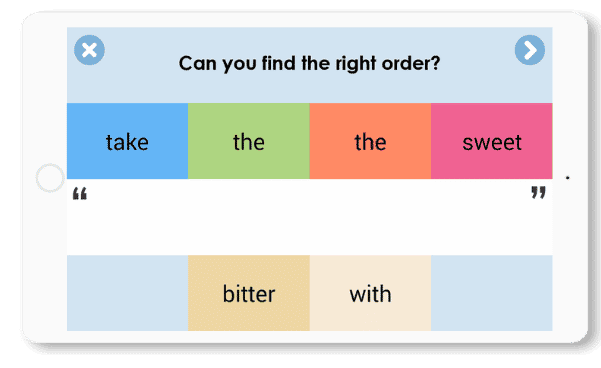

Develop their intelligence
Find more than 30 educational games to help them work on English, math, logic, memory or attention.
The physical games complete their learning.
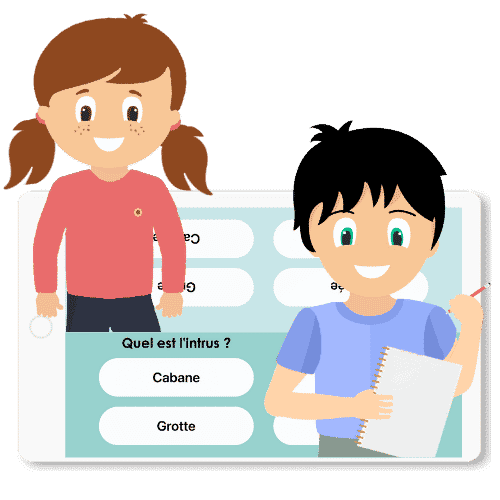
Play together
The COCO THINKS and COCO MOVES program is used at school or at home.
The children can play together on the same tablet.
The tablet is then only a mediation, and it boosts their cerebral development.
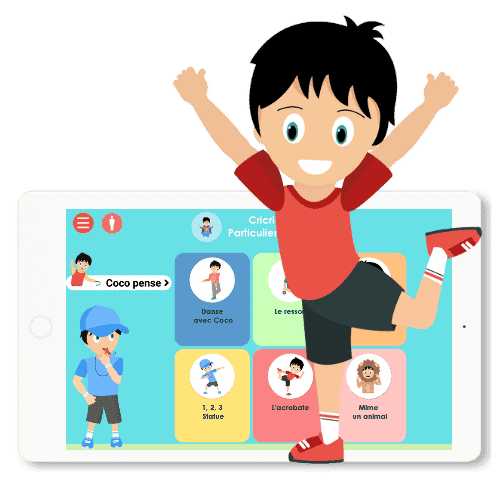
Do some exercise
This allows children to learn to use screens in moderation.
Way smarter than a parental control!
Other articles you might be interested in:
Supporting children with autism
Dynseo proposesSUPPORTING CHILDREN WITH AUTISM with COCO THINKS AND COCO MOVESDynseo and its team are very much...
Supporting DYS children with COCO THINKS and COCO MOVES
Dynseo proposesDYS disorders with COCO THINKS and COCO MOVESOur educational and pedagogical games program COCO THINKS...
Language development
Children communicate from birth with movements, crying, looking at each other or with smiles. After only a few months,...
Supporting children with Down Syndrome with Coco
Dynseo proposesDOWN SYNDROME with COCODown syndrome is a non-hereditary chromosomal abnormality that leads to the...
Supporting people after a stroke
Dynseo proposesStroke with CLINT, your brain training coachThe Dynseo team is very involved in helping people who have...
Supporting someone with Alzheimer’s
In this guide, we will detail how SCARLETT can be used for supporting someone with Alzheimer's. SCARLETT is a...
10 myths about the human brain you didn’t know
The brain is an incredible muscle, however there are many things we do not know, and what we do know is not always...
Using Digital Tools to Support Students with Special Educational Needs
Special Educational Needs (SEN) encompass a wide range of learning difficulties and disabilities that can hinder a...
Down Syndrome and Communication: Facilitating Interaction with Visual and Interactive Supports
When we think about Down syndrome, we often recognize it as a genetic condition that affects physical and cognitive...
How to Track Progress in People with Down Syndrome Using Digital Tools
Down syndrome, a genetic condition caused by the presence of an extra chromosome 21, affects approximately 1 in every...






